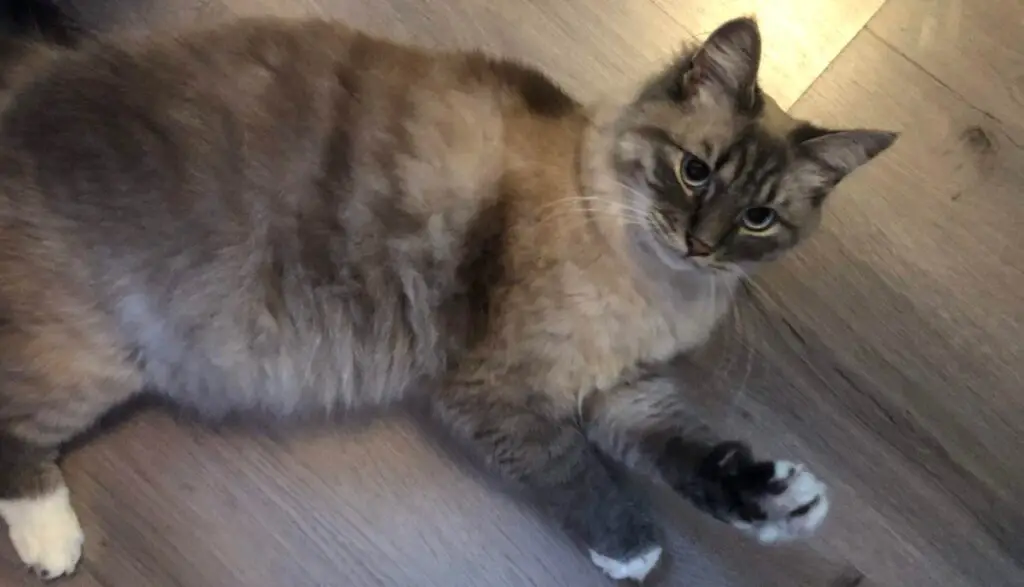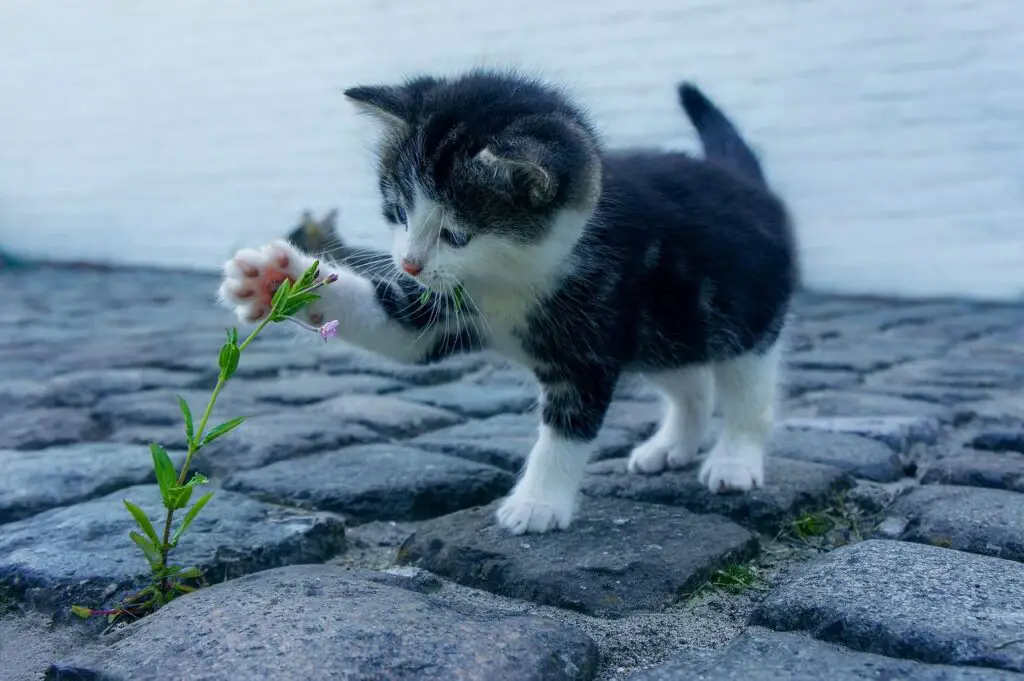Do you ever wonder if your cat remembers you? The answer is yes! Cats have remarkable memories and can remember their owners in various ways. They rely on their working, short-term, and long-term memory to recall people who have impacted their lives.
Cats develop strong attachments to their owners through associative memory and keen senses. They recognize familiar faces and build positive associations with them, seeking security and comfort from their presence. Cats also remember those who provide for their basic needs, such as those who feed them.
However, it’s important to note that cats are selective about what they remember and may forget certain people or experiences. By engaging in positive interactions, respecting their boundaries, and paying attention to their communication, you can strengthen the bond with your feline friend and prevent cognitive decline.
This article will explore the different types of cat memory, their ability to remember companions, their homing instinct, and how to manage memory loss in senior cats.
Key Takeaways
- Cats remember their owners through associative memory and their senses.
- Building a loving relationship with cats strengthens the bond and helps them remember their owners.
- Cats may recognize their owners’ names and respond to their communication.
- Cats rely on their owners as a source of security and comfort.

What do cats remember?
Cats can remember their owners, holding onto cherished memories of the times they shared and the love they received. The impact of positive experiences often shapes these memories. When cats have enjoyable interactions with their owners, it leaves a lasting impression in their minds. They associate these memories with feelings of comfort and security, forming a strong bond that can last a lifetime.
One way cats remember their owners is through the association with scents. Cats have a highly developed sense of smell, and they can recognize familiar scents, including the scent of their owners. The familiar smell of their owner can bring back memories and feelings of familiarity, which helps strengthen the bond between them.
Cats also can recognize human faces. While their visual memory may not be as strong as their sense of smell, cats can still remember their owners’ faces. They can differentiate between familiar faces and strangers, further solidifying their memory of their owners.
Unfortunately, cats can also remember experiences of abuse. If a cat has been mistreated, it may associate certain scents or sights with those negative memories. This can lead to fear or avoidance behaviors towards certain people or situations.
It’s important to note that cats are selective in what they remember. Depending on the length and impact of their relationship, they may remember some people more vividly than others. Cats have unique ways of remembering and forming attachments, which may vary from cat to cat.
Cats can remember their owners through positive experiences, association with scents, recognition of human faces, memory of abuse, and selectivity in remembering. Building a loving and positive relationship with your cat can create lasting memories and strengthen your bond.
Types of cat memory
Feline memory encompasses different types, allowing them to recall experiences, associations, and even faces. Cats have associative memory, which means they can remember things by associating them with a particular event or experience. For example, they can remember their owners by associating them with positive experiences such as receiving food, affection, or playtime. This memory helps cats remember people who have significantly impacted their lives.
In addition to associative memory, cats also have sensory memory. They can remember things through their senses, such as smell, hearing, and sight. Cats have a strong sense of smell and can remember individuals by their unique scent. They can also remember familiar voices and recognize their owners based on their distinctive sounds. Cats are also visually observant and can remember people by appearance and facial features.
Cats learn primarily through conditioning, which involves associating certain behaviors with positive or negative consequences. Positive consequences, such as rewards or treats, can impact a cat’s long-term memory. On the other hand, negative consequences can also be remembered, and cats may avoid certain behaviors or situations to prevent negative outcomes.
Furthermore, cats have a working memory of visual and olfactory signals. They can remember things quickly, allowing them to navigate their environment and where things are located. This type of memory is essential for survival and helps cats find food, water, and shelter.
Cats have different types of memory that allow them to remember experiences, associations, and even faces. They have associative, sensory, and working memory of visual and olfactory signals. Understanding these types of memory can help us better understand how cats remember their owners and the world around them.
Cats’ Memory of Companions
Regarding their human companions, cats have an incredible memory for the people who’ve positively impacted their lives. Cats form deep emotional connections with those who provide them with love, care, and security. Here are some fascinating ways cats remember their companions:
- Emotional connection: Cats remember their owners through the emotional bond they share. They can sense and appreciate the love and affection given to them, which creates a lasting memory.
- Sensory associations: Cats remember their owners through sensory associations. They can recall familiar scents, sounds, and even the touch of their human companions.
- Recalling familiar faces: Cats have an amazing ability to recognize and remember familiar faces. They can distinguish between their owners and other people they encounter.
- Remembering past experiences: Cats remember past experiences with their owners. They can recall joyful moments, comforting interactions, and even negative incidents that may have happened.
- Attachment and bonding: Cats remember their owners through the strong attachment and bonding they’ve formed. They rely on their human companions for security, comfort, and belonging.
Cats have remarkable memory when it comes to their companions. They remember the emotional connection, sensory associations, familiar faces, past experiences, and the attachment and bonding they share with their owners. Building a loving relationship with cats isn’t just rewarding for us but also leaves a lasting impression on their memory.
Cats’ homing instinct
Tap into your cat’s incredible homing instinct and watch as they navigate back to familiar territory with astonishing accuracy. Cats possess a remarkable ability to find their way home, even when they are miles away. Their navigation abilities are influenced by various factors, including their memory of familiar scents. Cats have a keen sense of smell, and they can remember scents for long periods of time. This memory helps them retrace their steps and return to their territory.
In addition to scent memory, cats use landmarks to navigate their way home. They pay close attention to their surroundings and create mental maps of the area. Landmarks such as buildings, trees, and roads are important reference points for cats, guiding them back to familiar territory.
Regarding homing instincts, cats are exceptional compared to other animals. They have been known to find their way home even after being relocated to unfamiliar places. This ability showcases their strong memory and navigational skills.
So, if you are ever worried about your cat getting lost, trust in their homing instinct. By providing them with a safe and loving environment, they’ll always remember their way back home.

Managing memory loss in senior cats
As senior cats age, they may experience memory loss, requiring special care and attention to maintain their quality of life. Witnessing your beloved feline companion struggle with cognitive dysfunction can be heartbreaking. Still, there are steps you can take to manage their memory loss and ensure they live their golden years to the fullest.
To prevent memory loss in senior cats and promote their overall cognitive health, consider the following:
- Memory-enhancing activities: Engage your senior cat in stimulating mental exercises, such as puzzle toys or interactive games, to keep their mind sharp and active.
- Environmental enrichment: Create a stimulating environment by providing scratching posts, climbing trees, and hiding spots. This can help prevent boredom and stimulate your cat’s cognitive abilities.
- Feline memory supplements: Consult with your veterinarian about possibly using supplements designed to support cognitive function in senior cats. These supplements may contain antioxidants and omega-3 fatty acids, which can slow down brain deterioration.
- Consistent routine: Maintain a daily routine for your senior cat, including regular feeding times, play sessions, and cuddle time. This can help create a sense of familiarity and reduce anxiety.
- Veterinary care: Regular check-ups with your veterinarian are crucial for monitoring your senior cat’s health and addressing any potential cognitive issues. Your vet can guide managing memory loss and recommend appropriate treatments if necessary.
By implementing these memory loss prevention strategies and providing proper care, you can help your senior cat live a comfortable and fulfilling life, even in the face of cognitive challenges. Remember, every cat is unique, so it’s important to tailor your approach to your cat’s needs.

Conclusion
So, in conclusion, cats can remember their owners through associative memory and their senses. They form strong bonds with their owners and rely on them for security and comfort.
Cats remember people who’ve provided for their needs, such as feeding them. However, cats can be selective in what they remember and may forget certain people or experiences.
Engaging in positive interactions with cats, respecting their boundaries, and paying attention to their communication is important to build a loving relationship and prevent cognitive decline in senior cats.
